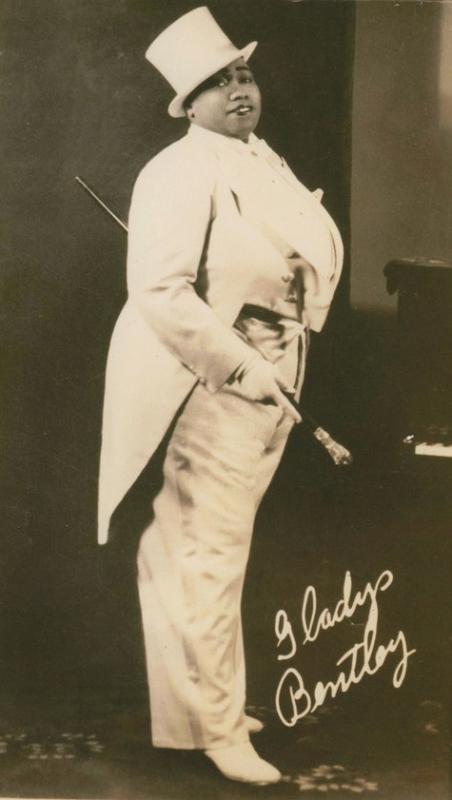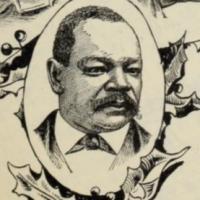Gladys Bentley
Born in Philadelphia in 1907, Gladys Bentley’s greatest success came in the 1920s. Bentley built on the sexual and gender ambiguity pioneered by performers like Bessie Smith and Ma Rainey. In the 1920s. she was openly lesbian and frequently performed in male attire, a celebrated part of the New York City bohemian nightlife at Harry Hansberry's Clam House and the “Ubangi Club” on Park Avenue. Bentley had a powerful voice and a knack for trumpet-like vocalizations. She knew how to produce “the blues” on-demand for audiences who had come to expect a formula, but she gave the formula an exotic and ironic recitation.
On “Wild Geese Blues” (1928), a duet with guitarist Eddie Lang, just as Bentley offered a twist on blues formulas, Lang cleverly inverted standard blues progressions.
Bentley’s heyday coincided with prohibition: when she sang in “legitimate,” legal, establishments, she began to drop the nonconforming attire and perform in a more conventional style. Bentley’s career shows us how “the blues” emerged from novelty and urban sophistication as much as from rural life.
On “Wild Geese Blues” (1928), a duet with guitarist Eddie Lang, just as Bentley offered a twist on blues formulas, Lang cleverly inverted standard blues progressions.
Bentley’s heyday coincided with prohibition: when she sang in “legitimate,” legal, establishments, she began to drop the nonconforming attire and perform in a more conventional style. Bentley’s career shows us how “the blues” emerged from novelty and urban sophistication as much as from rural life.


